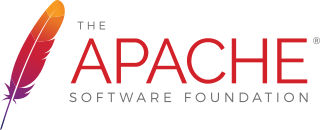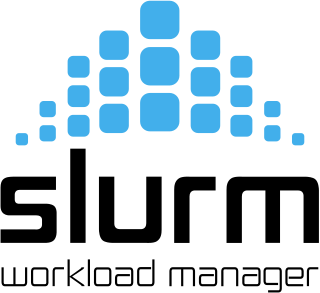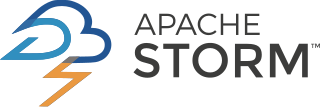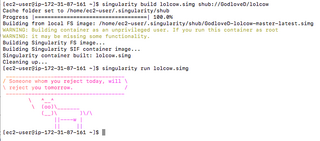Freeware is software, most often proprietary, that is distributed at no monetary cost to the end user. There is no agreed-upon set of rights, license, or EULA that defines freeware unambiguously; every publisher defines its own rules for the freeware it offers. For instance, modification, redistribution by third parties, and reverse engineering are permitted by some publishers but prohibited by others. Unlike with free and open-source software, which are also often distributed free of charge, the source code for freeware is typically not made available. Freeware may be intended to benefit its producer by, for example, encouraging sales of a more capable version, as in the freemium and shareware business models.

The Apache License is a permissive free software license written by the Apache Software Foundation (ASF). It allows users to use the software for any purpose, to distribute it, to modify it, and to distribute modified versions of the software under the terms of the license, without concern for royalties. The ASF and its projects release their software products under the Apache License. The license is also used by many non-ASF projects.
Source-available software is software released through a source code distribution model that includes arrangements where the source can be viewed, and in some cases modified, but without necessarily meeting the criteria to be called open-source. The licenses associated with the offerings range from allowing code to be viewed for reference to allowing code to be modified and redistributed for both commercial and non-commercial purposes.
Oracle Grid Engine, previously known as Sun Grid Engine (SGE), CODINE or GRD, was a grid computing computer cluster software system, acquired as part of a purchase of Gridware, then improved and supported by Sun Microsystems and later Oracle. There have been open source versions and multiple commercial versions of this technology, initially from Sun, later from Oracle and then from Univa Corporation.
HTCondor is an open-source high-throughput computing software framework for coarse-grained distributed parallelization of computationally intensive tasks. It can be used to manage workload on a dedicated cluster of computers, or to farm out work to idle desktop computers – so-called cycle scavenging. HTCondor runs on Linux, Unix, Mac OS X, FreeBSD, and Microsoft Windows operating systems. HTCondor can integrate both dedicated resources and non-dedicated desktop machines into one computing environment.
A permissive software license, sometimes also called BSD-like or BSD-style license, is a free-software license which instead of copyleft protections, carries only minimal restrictions on how the software can be used, modified, and redistributed, usually including a warranty disclaimer. Examples include the GNU All-permissive License, MIT License, BSD licenses, Apple Public Source License and Apache license. As of 2016, the most popular free-software license is the permissive MIT license.
Maui Cluster Scheduler is a job scheduler for use on clusters and supercomputers initially developed by Cluster Resources, Inc. Maui is capable of supporting multiple scheduling policies, dynamic priorities, reservations, and fairshare capabilities.
SIMH is a free and open source, multi-platform multi-system emulator. It is maintained by Bob Supnik, a former DEC engineer and DEC vice president, and has been in development in one form or another since the 1960s.
The Terascale Open-source Resource and Queue Manager (TORQUE) is a distributed resource manager providing control over batch jobs and distributed compute nodes. TORQUE can integrate with the non-commercial Maui Cluster Scheduler or the commercial Moab Workload Manager to reduce overall utilization, scheduling and administration on a cluster.

Altair Engineering Inc. is an American multinational information technology company headquartered in Troy, Michigan. It provides software and cloud solutions for simulation, IoT, high performance computing (HPC), data analytics, and artificial intelligence (AI). Altair Engineering is the creator of the HyperWorks CAE software product, among numerous other software packages and suites. The company was founded in 1985 and went public in 2017. It is traded on the Nasdaq stock exchange under the stock ticker symbol ALTR.
Altair Accelerator, previously known as NetworkComputer (NC), is a commercial job scheduler developed by Altair Engineering. The product was originally developed by Runtime Design Automation (RTDA) before Altair acquired the company.

Univa was a software company that developed workload management and cloud management products for compute-intensive applications in the data center and across public, private, and hybrid clouds, before being acquired by Altair Engineering in September 2020.
BSD licenses are a family of permissive free software licenses, imposing minimal restrictions on the use and distribution of covered software. This is in contrast to copyleft licenses, which have share-alike requirements. The original BSD license was used for its namesake, the Berkeley Software Distribution (BSD), a Unix-like operating system. The original version has since been revised, and its descendants are referred to as modified BSD licenses.

The Slurm Workload Manager, formerly known as Simple Linux Utility for Resource Management (SLURM), or simply Slurm, is a free and open-source job scheduler for Linux and Unix-like kernels, used by many of the world's supercomputers and computer clusters.

The open-core model is a business model for the monetization of commercially produced open-source software. The open-core model primarily involves offering a "core" or feature-limited version of a software product as free and open-source software, while offering "commercial" versions or add-ons as proprietary software. The term was coined by Andrew Lampitt in 2008.
Univa Grid Engine (UGE) is a batch-queuing system, forked from Sun Grid Engine (SGE). The software schedules resources in a data center applying user-configurable policies to help improve resource sharing and throughput by maximizing resource utilization. The product can be deployed to run on-premises, using IaaS cloud computing or in a hybrid cloud environment.

DIET is a software for grid-computing. As middleware, DIET sits between the operating system and the application software. DIET was created in 2000. It was designed for high-performance computing. It is currently developed by INRIA, École Normale Supérieure de Lyon, CNRS, Claude Bernard University Lyon 1, SysFera. It is open-source software released under the CeCILL license.

Apache Storm is a distributed stream processing computation framework written predominantly in the Clojure programming language. Originally created by Nathan Marz and team at BackType, the project was open sourced after being acquired by Twitter. It uses custom created "spouts" and "bolts" to define information sources and manipulations to allow batch, distributed processing of streaming data. The initial release was on 17 September 2011.
Kubernetes is an open-source container orchestration system for automating software deployment, scaling, and management. Originally designed by Google, the project is now maintained by the Cloud Native Computing Foundation.

Singularity is a free and open-source computer program that performs operating-system-level virtualization also known as containerization.







